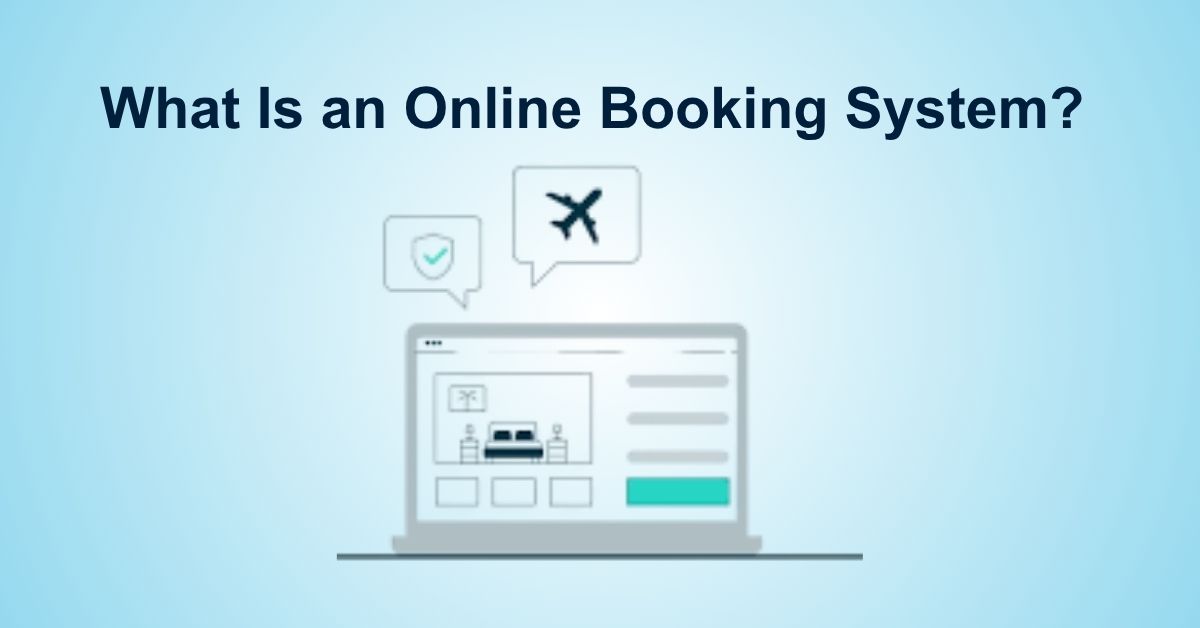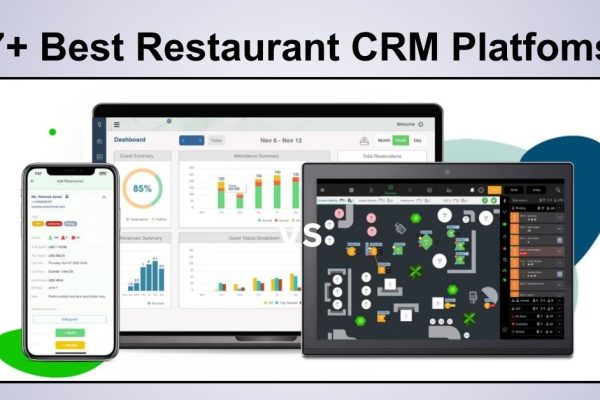What Is an Online Booking System? (5 Top Tools)

Many businesses, from small startups to large enterprises, still rely on a patchwork of emails, phone calls, and spreadsheets to manage appointments.
This manual process is not just time-consuming; it’s inefficient, prone to human error, and creates a frustrating experience for clients. It involves endless back-and-forth communication, manual reminders, difficult payment collection, and the constant risk of double-bookings.
Running a successful business requires optimizing your productivity. By implementing an online booking system — such as a WordPress appointment and booking plugin — you can automate this entire workflow, streamline operations, and free up valuable time to focus on growing your business.
This comprehensive guide explores what an online booking system is, contrasts it with manual methods, and highlights the top tools available to help you make the switch.
What Is an Online Booking System?
An online booking system is a software application that allows customers to view your availability and book, reschedule, or cancel appointments directly through a web-based interface. This interface can be a standalone webpage or a widget embedded directly into your company’s website or social media profile.
At its core, it eliminates the manual labor associated with scheduling. An ideal system manages your calendar in real-time, sends automated confirmations and reminders, and often processes payments upfront.

Beyond just collecting appointments, modern online booking systems act as a central hub for client management. They can integrate with your existing technology stack to create powerful, automated workflows. For example, you can connect your booking system to:
- CRM (Customer Relationship Management) Software: To automatically create or update client profiles and track their journey.
- Email Marketing Tools: To add clients to specific lists for newsletters or follow-up sequences.
- Payment Gateways (like Stripe or PayPal): To securely collect deposits or full payments at the time of booking.
- Video Conferencing Tools (like Zoom or Google Meet): To automatically generate and send unique meeting links for virtual appointments.
By synchronizing data across these platforms, a booking system breaks down information silos, reduces data entry errors, and ensures a single, unified source of truth for all client appointments.
Manual Scheduling vs. An Online Booking System
The difference in daily operations between a manual process and an automated one is stark. Let’s compare the two approaches.
The Old Way: Manual Appointment Scheduling
Without an online booking system, your workflow is likely plagued by inefficiencies:
- Constant Manual Work: You or your staff spend significant time on the phone or answering emails simply to coordinate available times.
- High Risk of Human Error: Double-bookings, forgotten appointments, and incorrect scheduling details are common, leading to client dissatisfaction and lost revenue.
- Limited Availability: Customers can only book appointments during your specific business hours, which is inconvenient for them and means you miss opportunities.
- Payment Hassles: You must handle payments separately, which involves sending invoices, tracking non-payments, and managing cash or card information manually.
- Siloed Information: Appointment data is stuck in one person’s email inbox or a physical notebook, making it difficult to share information with the rest of your team.
The New Way: Automated System Booking Online
With a modern booking platform, your operations are transformed:
- 24/7 Self-Service: Clients can see your real-time availability and book appointments anytime, anywhere, from any device. This convenience significantly improves the customer experience.
- Automated Accuracy: The system automatically updates your calendar, preventing all double-bookings. It sends instant confirmations and strategic reminders to clients, drastically reducing no-shows.
- Integrated Payments: You can require a deposit or full payment at the time of booking, which secures your revenue and further reduces no-shows.
- Freed-Up Resources: Your team is liberated from administrative burdens and can focus on higher-value tasks like client service, marketing, or business strategy.
- Unified Data: All appointment and client data is centralized and can be automatically synced with your other business tools, providing a complete view of your operations.
Top 5 Online Booking Systems for Your Business
Choosing the right platform is crucial. While many options exist, here are five of the top online booking systems known for their reliability and robust features.
1. Zoho Bookings

As part of the extensive Zoho software ecosystem, Zoho Bookings is a powerful choice for businesses that already use or plan to use other Zoho apps (like Zoho CRM, Mail, or Desk). It offers deep integration, allowing you to sync customer data, automate workflows, and manage bookings within a unified platform. It’s highly customizable for various service-based industries.
2. Calendesk

Calendesk is a comprehensive solution that goes beyond basic scheduling. It combines an online booking system with a simple website builder, a built-in CRM, and integrated payment processing. This makes it an excellent all-in-one tool for service-based entrepreneurs and small businesses who want to manage their entire online presence and client workflow from a single dashboard.
3. SimplyBook.me

SimplyBook.me is a highly versatile and scalable booking solution used by a wide range of industries, including health, wellness, and education. Its key strength is its vast library of custom features, allowing you to enable only the functions you need. It offers features like HIPAA compliance for medical professionals, SOAP notes, and the ability to sell products or memberships alongside services.
4. Calendly

Calendly is one of the most recognized names in scheduling, celebrated for its simplicity and user-friendly interface. It excels at 1-on-1 meeting scheduling and integrates seamlessly with almost any personal or work calendar (Google, Office 365, Outlook, iCloud). Its ability to be easily embedded in emails and websites makes it a favorite for sales teams, recruiters, and consultants.
5. Square Appointments

For businesses already using the Square payment ecosystem (POS, online payments), Square Appointments is an ideal and seamless solution. It integrates booking, payments, and client management directly with your Square point-of-sale. It’s particularly strong for brick-and-mortar service businesses like salons, spas, and fitness studios, as it can also manage staff schedules and inventory.
Note: Many of these platforms offer an online booking system free tier, which is perfect for solo entrepreneurs or small businesses just starting. These free plans typically cover basic scheduling needs and allow you to test the platform before committing to a paid plan.
How Different Industries Leverage Online Booking Systems
The utility of a robust booking platform spans nearly every sector. Here is how various industries use these systems to optimize their specific workflows.
Health and Wellness
For hospitals, private clinics, therapists, and wellness centers, booking systems are critical. They can manage appointments across multiple practitioners and locations. Advanced systems offer HIPAA-compliant forms to securely collect patient medical history before the visit. Automated reminders are essential for reducing costly patient no-shows.
Professional Services
Consultants, law firms, life coaches, and financial planners use online booking systems to sell their time effectively. They can enable pre-payment to secure a consultation, distinguishing serious clients from casual inquiries. Integration with video conferencing tools is key for facilitating remote consultations seamlessly.
Sales and Customer Success
Instead of “when are you free?”, sales teams can simply share their booking link. This allows prospects to book a product demo or consultation call instantly. Integrating the system with a CRM like Salesforce or HubSpot automatically pushes new leads into the sales pipeline, tracking their journey from first contact.
Education and Tutoring
Workshop organizers, online course providers, and private tutors use these systems to manage class registrations and one-on-one sessions. Group booking features allow multiple students to sign up for a single event. They can also automate the delivery of course materials or Zoom links upon successful registration.
Real Estate
Agents and property managers use booking platforms to manage property viewings and open house registrations. This prevents scheduling conflicts and provides a professional experience for potential buyers or renters. It also allows them to send automatic follow-ups, including the property address and a reminder of the agent’s contact details.
Recruitment
Human resources departments streamline the entire interview process. They can send a booking link to candidates to schedule interviews, which automatically accounts for different time zones. Buffer times can be added between interviews to give the hiring team time to debrief, making the entire hiring process more efficient.
FAQs About an Online Booking System
Q1: What is the main benefit of an online booking system?
The primary benefit is automation. It saves you and your staff countless hours of administrative work by eliminating manual scheduling, reminders, and data entry. This leads to reduced errors, fewer no-shows, and a more professional customer experience.
Q2: Can I get an online booking system free?
Yes, many top-tier online booking systems, including several on our list, offer a permanently free plan. These plans are typically best for individuals or very small businesses with basic scheduling needs and a lower volume of appointments.
Q3: Do online booking systems integrate with my existing calendar?
Absolutely. All major booking platforms are designed to integrate with popular calendars like Google Calendar, Office 365, and Outlook. They use two-way synchronization, meaning any event added to your personal calendar will block that time on your booking page, and any new booking will instantly appear in your personal calendar.
Conclusion: The Future of Scheduling Is Automated
Moving from manual spreadsheets and phone tag to an integrated online booking system is no longer a luxury—it’s a competitive necessity. These platforms drive efficiency, reduce costly errors, improve your cash flow with integrated payments, and provide the seamless, 24/7 convenience that modern customers expect.
By automating the logistics of scheduling, you reclaim your most valuable asset: time. This allows you to focus on strategic growth, enhance your client relationships, and build a more scalable, professional, and profitable business.
You may also like
7+ Best Restaurant CRM Platforms to Boost Revenue
Posted on December 23, 2025Running a successful dining establishment requires more than just excellent food and service; it requires data.
When profits are tight, building repeat customer relationships determines whether a business can succeed.
A restaurant CRM plays a crucial role as a high-value business asset.
Industry statistics frequently
7+ Best Help Desk Software for Travel and Hospitality
Posted on December 2, 2025Are you overwhelmed by a flood of booking inquiries, last-minute cancellations, and guest requests scattered across email, phone calls, and social media?
In the travel and hospitality industry, response time is the currency of trust.
A delayed response to a traveler stranded at an airport or a guest







